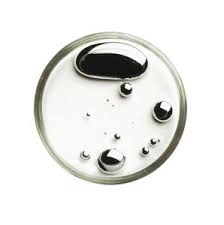
- +86-13363869198
- weimiaohb@126.com

Nov . 21, 2024 06:42 Back to list
testosterone undecanoate cas 5949-44-0
Understanding Testosterone Undecanoate An Overview
Testosterone undecanoate, a synthetic derivative of the male hormone testosterone, has gained significant attention in the fields of medicine and bodybuilding. With the chemical formula C30H46O3 and the CAS number 5949-44-0, this compound is unique due to its long ester chain, which modifies its pharmacokinetic properties, allowing for a gradual release into the bloodstream after administration.
Chemical Composition and Properties
Testosterone undecanoate is characterized by its 17β-undeconoate ester. This structure not only increases its lipophilicity but also facilitates oral bioavailability, a significant advantage over other testosterone forms that require injection. Its molecular weight is approximately 442.68 g/mol. As a lipid-soluble substance, testosterone undecanoate can diffuse through cell membranes more easily, leading to a more prolonged effect after administration.
Medical Applications
In clinical settings, testosterone undecanoate is primarily used for testosterone replacement therapy (TRT) in men with androgen deficiency, a condition often referred to as hypogonadism. Symptoms of hypogonadism can include low libido, fatigue, decreased muscle mass, and mood changes. Administered orally or via intramuscular injection, testosterone undecanoate helps restore normal testosterone levels, positively impacting overall health and quality of life.
Moreover, testosterone undecanoate has shown promise in treating certain conditions related to testosterone deficiency, such as osteoporosis, by promoting bone density
. Its effectiveness and relatively mild side-effect profile compared to shorter-acting testosterone esters make it a preferred choice among healthcare providers.Bodybuilding and Athletic Use
testosterone undecanoate cas 5949-44-0

In the world of bodybuilding and athletics, testosterone undecanoate is often sought for its potential to enhance muscle mass, strength, and recovery. Users appreciate its sustained release profile, which allows for less frequent dosing compared to other anabolic steroids. This quality makes it appealing to athletes looking to maintain performance while managing the risk of negative side effects commonly associated with more potent steroids.
However, it is crucial to note that the non-medical use of testosterone undecanoate comes with significant risks, including androgenic effects like acne, hair loss, and mood swings, as well as potential cardiovascular issues. Moreover, athletes should be wary of anti-doping regulations, as the use of testosterone for performance enhancement is generally prohibited.
Side Effects and Risks
While testosterone undecanoate has therapeutic benefits, it is not devoid of side effects. Common adverse effects may include fluid retention, alterations in liver function tests, and an increase in red blood cell mass. Long-term use can lead to suppression of natural testosterone production, necessitating a careful approach to dosage and duration of therapy.
Additionally, there is a risk of developing serious conditions such as prostate enlargement or cancer with extended use. Regular monitoring by a healthcare professional is essential to mitigate these risks and ensure safe use.
Conclusion
Testosterone undecanoate represents a significant advancement in testosterone replacement therapy and the performance enhancement landscape. Its unique properties allow for a more stable and prolonged hormonal balance, making it an attractive option for those needing testosterone supplementation. However, understanding the implications of its use, especially in non-medical contexts, is vital. As research continues to evolve, it is essential to approach testosterone undecanoate with caution, prioritizing health and well-being above all. Whether for medical purposes or performance enhancement, informed decisions can lead to better outcomes and minimized risks associated with testosterone therapy.
-
High Quality Bromazolam CAS 71368-80-4 – Leading Supplier & Factory Price
NewsJul.08,2025
-
Protonitazene (Hydrochloride) CAS 119276-01-6 Supplier - Top Manufacturers & Factories
NewsJul.08,2025
-
High Purity 162607-19-4 Manufacturer & Supplier Reliable 162607-19-4 Factory Price
NewsJul.08,2025
-
High Purity CAS 1379686-29-9 SR-9011 Supplier Trusted Factory Direct Sale
NewsJul.07,2025
-
High Purity 299-11-6 Manufacturer & Supplier Reliable 299-11-6 Factory Price
NewsJul.07,2025
-
High-Quality CAS 51022-70-9 Albuterol Sulfate Reliable Factories & Suppliers
NewsJul.06,2025